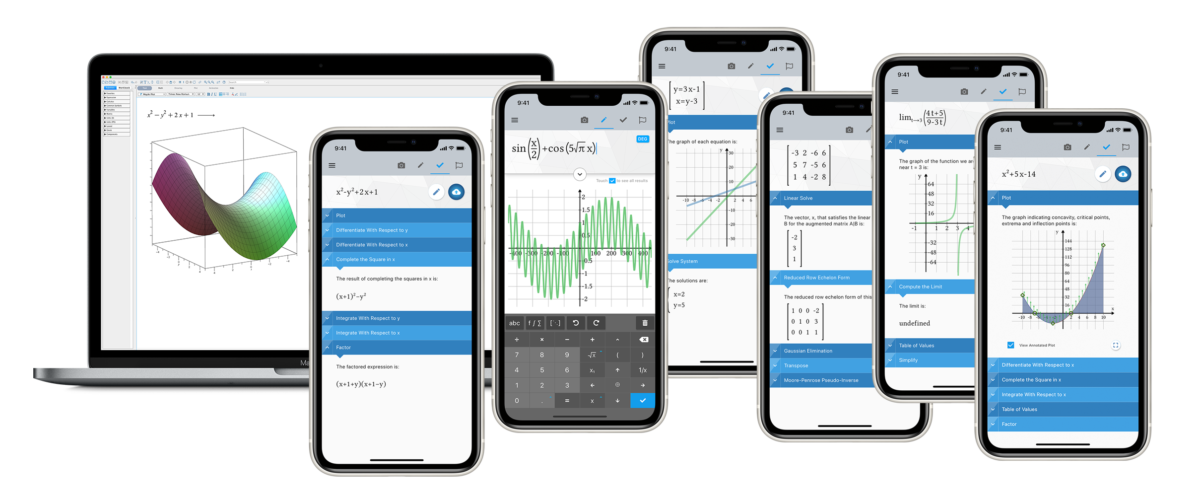[vc_row][vc_column][vc_column_text]Vancouver education tech company SoftServe is setting up the next generation of workers for success through the gamification of building soft skills.
Defined as personal attributes needed to be successful in virtually every job—but not necessarily taught in the classroom—soft skills include the likes of communication, problem-solving, teamwork, and adaptability. Through Softserve’s five-minute customizable game students build their knack for soft skills through Design Thinking and Social Emotional Learning (SEL).
The innovation was designed to help teachers weave their curriculum into the game. Through daily participation in the five-minute activity, students will develop healthy identities, learn to manage their emotions, and achieve both personal and collective goals.
Annee Ngo, CEO and Co-Founder of SoftServe, believes that as AI takes over many technical jobs, soft-skills-driven jobs where human emotions, such as empathy and curiosity, are needed will be in high demand.


“We know employers value soft skills now more than ever before, with recent studies showing employers look for and value soft skills such as empathy and the ability to work collaboratively more than traditional hard skills,” she says.
Most importantly, SoftServe is dedicated to making sure its education is accessible to anyone, so the software is free to educators.
As children of immigrants and refugees, Annee Ngo, along with co-founders Rukshana Hassanali and Mike Le, wanted to give every student the same opportunity to develop skills that will be crucial in obtaining jobs in the future.
“There isn’t a soft skills course where you can develop your empathy or curiosity. These come in the form of afterschool programs and internships, which are often prohibitive to many students,” says Ngo.
Originally designed to be integrated into the classroom, COVID-19 offered a new opportunity for SoftServe as virtual platforms and software became widely in demand. To better serve the needs of educators, SoftServe adjusted and re-designed its platform to provide a stronger long-term solution. It was no easy feat, as teachers are SoftServe’s number one advisors, and with the pandemic in full swing, educators were already facing an amplified workload.
“This illuminated the importance of community to us. Now, we have a strong team of educators and teachers who serve as advisors and help us further develop SoftServe to be the best it can be” says Ngo.
As of now, SoftServe is used in over 35 schools across Canada and the U.S., with the hopes of being in every classroom and, eventually, every workplace in the upcoming years.
For this week’s Startup Spotlight, Bay Street Bull spoke with Annee Ngo, CEO and Co-Founder of SoftServe, about the “Soft Skills Revolution” and how SoftServe is making it happen.[vc_text_separator title=”Q&A” color=”custom” style=”double” border_width=”2″ accent_color=”#1990ff”][vc_column_text]
What is SoftServe?
SoftServe the game is the world’s first game-based learning platform designed to teach, track, and develop soft skills in students in as little as five minutes a day. The anonymous data gathered from the use of the game in schools fuels another world-first, our Soft Skills Index, designed to empower and help employers make better hiring and training practices.
Why was SoftServe created?
As children of immigrants and refugees, we know firsthand the power of education in providing economic opportunities. The reality is, many students are not yet learning the fundamental skills that will help them succeed in the real world. There isn’t a soft skills course where you can develop your empathy or curiosity. These come in the form of afterschool programs and internships, which are often prohibitive to many students.
SoftServe was created to make soft skills education accessible to all.
Who should be using SoftServe?
SoftServe was designed by teachers for teachers. We believe early soft skills education is key in developing these crucial skills that ultimately lead to more self-aware, productive, and empathic adults.
Were there any obstacles in bringing SoftServe to life? If so, how did you overcome these?
SoftServe was designed for teachers. Throughout the pandemic, we saw firsthand how busy they were and came to understand just how multifaceted the role of a teacher truly is. Because of their limited bandwidth, engaging with them and seeking their advice on the game was a challenge at first. Being that we also wanted to design it exclusively for them, we didn’t want input from just anyone – it had to come from a teacher, and if that meant waiting and putting certain elements on pause until we could verify and get counsel from an educator, then that’s what we did.
This illuminated the importance of community to us. Now, we have a strong team of educators and teachers who serve as advisors and help us further develop SoftServe to be the best it can be. As much as we need them as a resource, it’s always been imperative that we’re a resource for them as well, and we believe SoftServe has reached a place where it’s genuinely improving teachers’ lives.
How does SoftServe fill the gap in Design Thinking and Social Emotional Learning that students are missing from traditional schooling?
While technology has made lives better in so many ways, it’s also widened the gap between traditional schooling and career readiness. The jobs of today require human soft skills that can’t easily be replicated by machines. SoftServe aims to introduce the principles of Design Thinking combined with Social Emotional Learning (SEL) to our traditional schooling in a fun, low-stakes environment. In order to do this, we’ve deconstructed the Design Thinking model for innovation into its most foundational parts, beginning with empathy. At the center of both Design Thinking and SEL is the practice of perspective taking and perspective giving, which builds empathy. SoftServe is reintroducing soft skills to our traditional schooling program by offering a framework for educators to engage students through questions like ‘who cares?’ and ‘why?’. In recognizing that hard skills and the existing curriculum aren’t going anywhere, SoftServe gives teachers the flexibility to develop soft skills using their existing content. There is no need to develop new programming or introduce new curriculum. SoftServe’s platform was designed for simple and easy integration into any course, from History to Computer Sciences.


How do soft skills set students up for success?
Whether for college, career, or beyond, soft skills are crucial tools that help students every step of the way. With AI and automation taking over more technical-skill-driven jobs, folks with strong technical backgrounds are finding themselves without work or struggling to find work in a world that demands soft skills. We know employers value soft skills now more than ever before, with recent studies showing employers look for and value soft skills such as empathy and the ability to work collaboratively more than traditional, hard skills. Canada is amid a soft skills deficit and addressing it starts with early education to equip future adults with the tools they need to function optimally at work and at home. If we don’t start early, our deficit will grow and lead to an employment and education crisis.
We’ve seen how drastically and rapidly education had to change during the pandemic. What kind of effect did COVID-19 have SoftServe as an education-tech company?
COVID’s expedited us into a future where work and learning can be entirely remote. As a result, teachers, schools, and students have opened their eyes to new tools and platforms like SoftServe. This has unequivocally been our greatest opportunity. However, the demands of new technology have increased exponentially. Before COVID, we developed SoftServe as a tool for the classroom, not to replace the classroom. We’ve had to quickly adjust and make SoftServe a much stronger tech solution. While these were plans in our product roadmap, we had to get there much faster.
The other challenge is more personal. Being able to meet educators where they’re at and support them in their classrooms has been one of our greatest pleasures as a team. Going into classrooms to learn from and alongside the students is a remarkable experience that we don’t get to enjoy anymore. We can’t wait to meet with our community of educators and students again!
What has the feedback been like from users? Any favourite user stories?
The feedback from educators has been great so far. We often hear how easy it is to integrate into existing curriculum and how much teachers appreciate that the game only takes five minutes to play. The feedback that means the most to me is when we hear SoftServe is easy to play for all kids, regardless of physical or cognitive ability.
We’ve also been able to see SoftServe in action, and how it sparks empathy and curiosity in students. A user story that really sticks out is when we visited a classroom that had recently started using SoftServe, and an otherwise passively engaged student asked us why we started our company. The game had sparked curiosity in her, and gave her the confidence to engage meaningfully with us. It created an open dialogue in the classroom about empathy and why it’s important to take a minute to reflect on our own answers and the answers of our peers. It was a beautiful moment that really cemented why we’re doing the work we’re doing.
What is SoftServe’s overall mission?
SoftServe is leading what we’re calling the Soft Skills Revolution. Our mission is to get SoftServe in every classroom across Canada to empower soft skills across the country. We believe soft skills should be attainable for all, and as it stands right now, most educational tools are either hidden behind a paywall or inherently biased, with soft skills education often favouring the majority. We’re actively fighting against this by making SoftServe free to educators, and our unique technology fueled by Social Emotional Learning and Design Thinking allows for collaborative learning. Soft skills are important. They need to be for everyone.
Where do you hope to see the company in five, ten years?
We hope to get SoftServe in every classroom, and in every workplace. Empathy and curiosity are human skills that will keep us prepared for whatever the future holds, and we want to be the engine for understanding and developing these critical soft skills. I look forward to hearing students boast about their SoftServe Score and how far along they’ve come with improving their empathy. We want to work with educational partners that offer hard-skill content like Coursera, Udemy, and larger educational institutions to introduce soft skills learning so that we can amplify their efforts in technical and vocational training.
[vc_row][vc_column][vc_separator][/vc_column][/vc_row][vc_row][vc_column]
[yikes-mailchimp form=”1″ title=”1″ submit=”SUBSCRIBE”]










